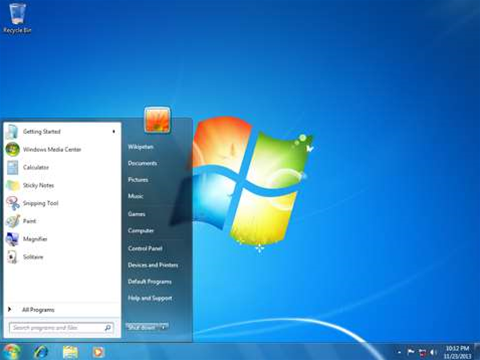Microsoft has begun to wean customers off the Windows 7 era of products as each approaches end of mainstream support, at a time that many organisations are still struggling to migrate off the unsupported Windows XP OS.

Around 25 percent of global desktop users are still running Windows XP, according to NetMarketShare. Extended support for XP expired in April.
Microsoft is now turning its attention to the 50 percent of worlwide desktop users using the five-year-old Windows 7.
The software giant last week issued an advisory warning customers that the end of mainstream support - a five-year period where Microsoft offers free patches and fixes - was nearing for the OS, as well as for Windows Server 2008, Windows Phone 7.8, and Exchange Server 2010, among others.
Mainstream support will cease for the majority of those products on January 13, 2015, at which point they enter 'extended support'. Mainstream support for Windows Phone 7.8 ends earlier on September 9, 2014.
Under extended support, Microsoft continues to offer free security fixes for a further five years, but other updates will incur fees.
Support ends for Windows Server 2003 starts in July 2015, after which time there will be no more updates, application support, patches or fixes.
Microsoft previously advised customers that migrations to the newer Windows Server 2012 would take over 200 days, and encouraged users to start planning sooner rather than later.
The company has been struggling to convince customers to migrate off its 12 year-old Windows XP operating system since it reached end of support in April.
Despite advanced notice and huge publicity, the percentage of global users still using the Windows XP OS has barely moved since the April deadline, falling just one percent to 25 percent of global desktop users.
Enterprises have been able to negotiate individual deals with the software vendor to keep the systems secure.
Governments around the world - including in New Zealand, the UK and the Netherlands - have paid hundreds of thousands of dollars in additional charges to Microsoft to continue using the obselete OS.



_(23).jpg&h=140&w=231&c=1&s=0)

_(22).jpg&h=140&w=231&c=1&s=0)



_(26).jpg&w=100&c=1&s=0)

 iTnews Executive Retreat - Security Leaders Edition
iTnews Executive Retreat - Security Leaders Edition












_(1).jpg&h=140&w=231&c=1&s=0)



